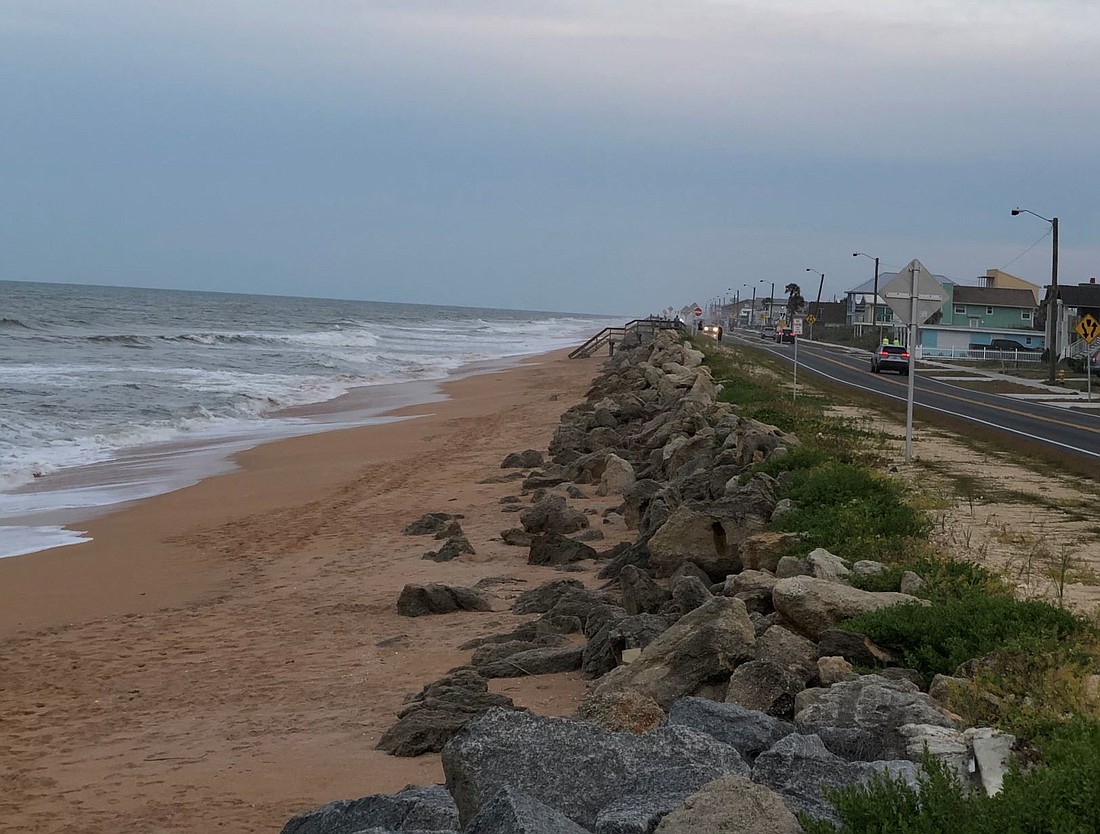- January 19, 2025
-
-
Loading

Loading

By refusing to sign easements that would allow a $25 million dune restoration project to proceed along their beachfront property, 13 property owners are endangering the entire 2.6-mile proposed Army Corps of Engineers project, according to the Flagler County government.
"Unless these folks come to the conclusion that we are in fact improving their property considerably by this effort ... I think that we’re essentially dead in the water.""
— JERRY CAMERON, Flagler County administrator
"If we can’t get this logjam broken in the next couple of weeks, this is essentially a dead project," County Administrator Jerry Cameron said during a July 13 County Commission meeting. "The Corps is not going to move forward with gaps in it. I don’t know how we would deal with that; unless these folks come to the conclusion that we are in fact improving their property considerably by this effort ... I think that we’re essentially dead in the water."
The county government has spent months attempting to get individual beachfront property owners to sign easements the Army Corps of Engineers requires in order to add additional sand on all of the properties along the 2.6-mile stretch of coastline that has been determined to be most at risk of future storm damage.
The county had been approved for the federal project in the aftermath of damage sustained during Hurricane Matthew.
Because gaps in the restored dune would lead to "breach points" that could compromise the project's integrity, the Army Corps of Engineers will not proceed if it doesn't receive easements for all of the properties.
So far, the county has received 126 easements, but is missing easements for 15 properties owned by 13 people.
Of those, 10 are represented by an attorney and want the county to pay to have the work performed on their land, County Attorney Al Hadeed told county commissioners in the July 13 meeting.
The county's deadline to obtain all of the easements was June 30.
County officials met with Army Corps officials on Wednesday, July 8, to discuss options, Hadeed said.
"We talked about excluding the properties the didn’t sign," he said. "They said that that would not be possible, that it would violate the congressional directive as to the restoration of these dunes. ... We did talk about the possibility of temporary construction easements as one option to try to get around unwilling owners and perhaps resolve issues at that time, but they said that is not acceptable under their rules. Right now their standard is, looking at our beach, they need a 100% participation by owners in order to proceed with the project."
The 10 people who are holding out for money have already been informed that the county and the city of Flagler Beach don't have money to purchase interests in properties, and that the dune restoration would enhance their property's value, not lessen it, Hadeed said.
County Commission Chairman David Sullivan called the situation unfortunate, and asked if all of the property owners understand the situation.
"Essentially, Mr. Chairman, it boils down to this," Cameron replied. "Maybe not 100% of them, but the majority of them: 'If you want to improve my property and protect it, you have to pay me.'"
Hadeed said that there's a fairness concern over any possibility of paying the holdouts: If the holdouts were paid for their easements, that would be unfair to people who had already signed easements in good faith.
"We told everybody from the very beginning — look, we want to put all of our money into the dunes, we do not have any money to purchase property interests," Hadeed said, "... If we were going to pay anybody, it would seems to me we need to pay them all."
Commissioners agreed that they would not pay for easements.